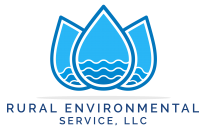Services
Water and wastewater operations
Full service contract water and wastewater operations including treating, monitoring, testing, and reporting. We will take care of all aspects of the utility system, including all paperwork and required sampling. We will ensure compliance and safety of the water or wastewater system.


consulting
If you are already happy with your current water operations company or are currently operating in-house, we can provide consulting services to help resolve recurring or unresolved issues. We can troubleshoot equipment and processes to help improve your maintenance reliability and operational costs.
training
Contact us today to find out about our training options and career path management. TCEQ-approved training now available. Please contact us for upcoming class dates.

F.A.Q.
Frequently Asked Questions
If you supply water to other people, even if its bottled, you might be a public water system (PWS). A PWS provides potable water for the public’s use. A system must be a certain size to be considered public. It must have at least 15 service connections, OR serve at least 25 individuals for at least 60 days out of the year.
The Texas Commission on Environmental Quality (TCEQ) maintains a web search that helps you find licensed water operators. To find the list of all licensed water operators visit www.tceq.texas.gov.
After a flood, drinking water sources may be contaminated. Be safe before you drink the water. Whether you are a public water system or own a private well, you might have to take steps to ensure that your drinking water is safe. If your home or property was flooded, it would be a good precaution to flush your service lines and plumbing. Flushing should remove any air or contaminants that may have entered your system. Visit www.tceq.texas.gov for advice on disinfecting your own well or call us to schedule a system evaluation.
In setting up a public water system—the water supply along with any treatment works needed and the pumps and pipes that deliver drinkable water to your customers—you accept a significant responsibility for a key aspect of the health of your customers.
- Submit your plans for review to the Plan Review Team well before construction of your planned system begins. They will help you determine if and what type of information is needed as well as what programs and regulations affect you.
- In accordance with Title 30, Texas Administrative Code, Section 290.39(m), the owner or responsible official must provide written notification to the TCEQ of the startup of a new public water supply system or the reactivation of an existing public water supply system. This notification must be made immediately upon meeting the definition of a public water system as defined in Title 30, Texas Administrative Code, Section 290.38
 .
. - For information regarding utilities, please contact the Public Utility Commission of Texas
 for more information.
for more information.
The rules and regulations for public water systems are established by the TCEQ in Title 30 Texas Administrative Code (30 TAC), Chapter 290.
The rules found in 30 TAC Chapter 290, Subchapter D, specify water treatment plant design, operation, and maintenance requirements for public water systems.
Rule: 30 TAC 290.38–47
Guidance: In revision
The Drinking Water Standards Governing Drinking Water Quality and Reporting Requirements for Public Water Systems (30 TAC Chapter 290, Subchapter F) describe the minimum required sampling, levels, and notification for public water systems.
Rule: 30 TAC 290.101-122
Guidance: In revision
30 TAC Chapter 290, Subchapter H, establishes the minimum requirements for the content of the Consumer Confidence Report, the annual report of drinking water quality that community public water systems must send to their customers.
Rule: 30 TAC 290.271-275
The EPA adopts rules under the Safe Drinking Water Act . The State of Texas must adopt regulations at least as stringent.
. The State of Texas must adopt regulations at least as stringent.
Public water systems should also be aware of other rules pertaining to drinking water that are contained in other parts of the Texas regulations. A public water system must comply with all the applicable requirements. Some examples of additional rules and their location within the regulations are:
- Requirements for water districts. Contact the Districts Section at 512/239-4691 if you have questions about these requirements. 30 TAC Chapter 293

- Requirements for certification of water works operators. These requirements will be relocated to 30 TAC Chapter 290, Subchapter A, in the near future. The Operator Certification Team (512/239-6300) can answer questions about these requirements. 30 TAC Chapter 30, Subchapter K

- Requirements for water well drillers and pump installers. If you have questions about these regulations, call the Texas Department of Licensing and Regulation
 at 1-800-803-9202 or 512/463-8876. 16 TAC Part 4 Chapter 76
at 1-800-803-9202 or 512/463-8876. 16 TAC Part 4 Chapter 76
